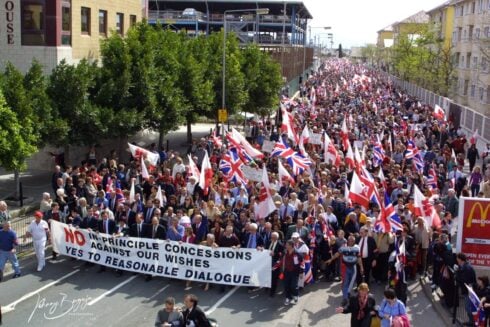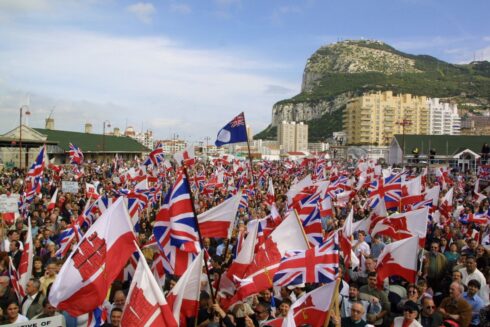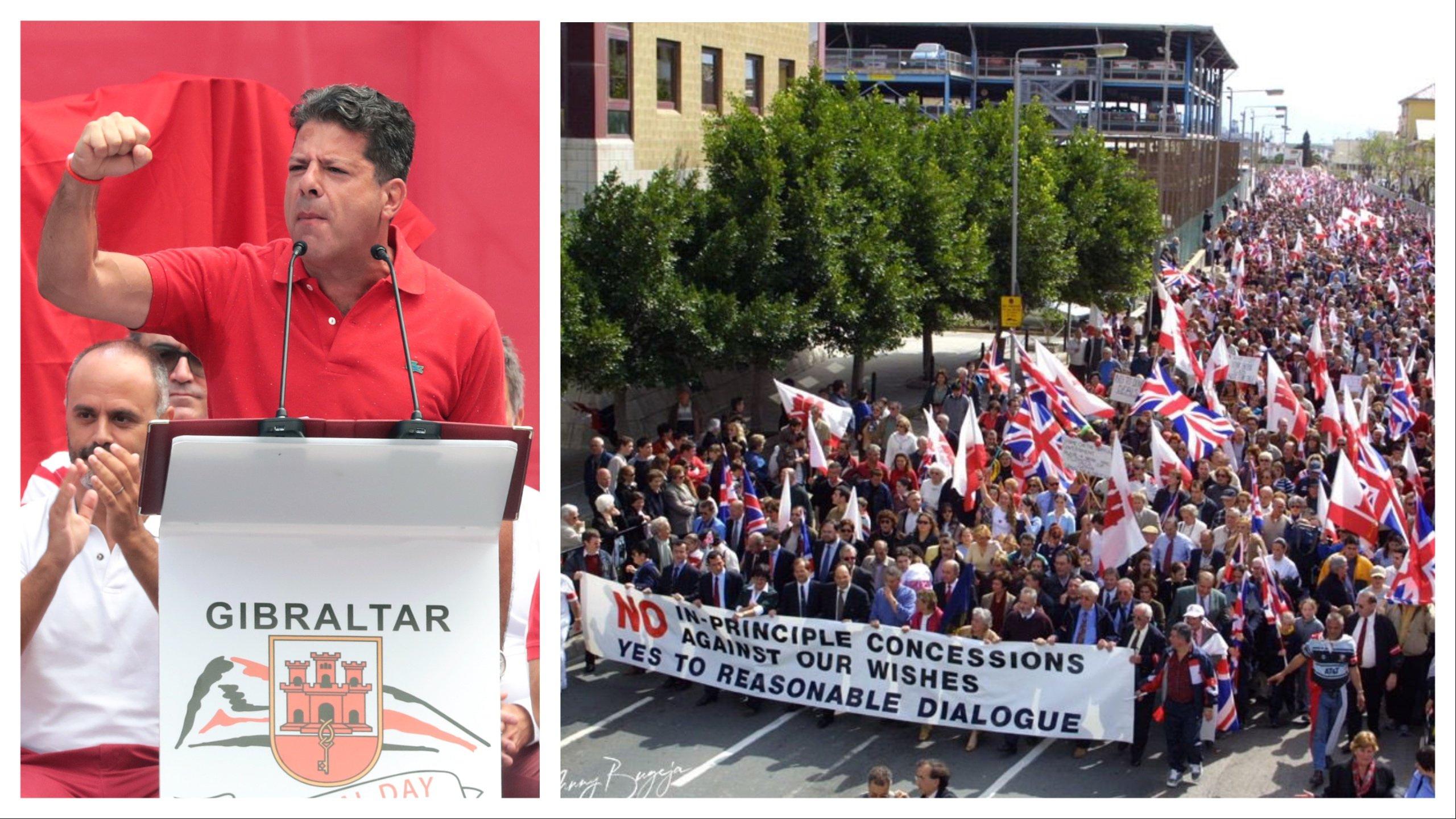TODAY is Gibraltar’s National Day, when the inhabitants of the tiny peninsula celebrate 320 years this year of British rule over the Rock.
Yet the celebrations are tempered by the tortured post-Brexit negotiations that are attempting to cement the status of Gibraltar within the Schengen zone.
How did we arrive at this point? The present day circumstances have only come about because the people said no.
But not just to Brexit itself – they said no when it appeared the British government was about to give away their sovereignty to Spain during a series of secret meetings in the 1990s.

They let their feelings be known with one of the largest protests per head of population in history.
And then they reaffirmed their ‘non’ with one of the most unanimous votes in the history of free and fair referendums.
The present talks, which must bear fruit before the introduction of a hard border with Spain in November, are the progenitor of this vote.
They are the better looking, genetically superior offspring of the talks that mobilised the people of Gibraltar to say no.
The talks were intended to ‘normalise relations’ and ‘settle the issue’ of Gibraltar’s long-disputed sovereignty.

They culminated in the ‘Joint Declaration on Gibraltar’, signed by Tony Blair’s Labour government in 1999.
It established a framework for discussions on issues like cross-border cooperation and, crucially, the much-loathed concept of co-sovereignty of the peninsula.
It would create a situation where both Spain and the UK would share control over Gibraltar in a deal known as the Brussels Agreement.
The Rock has been a point of contention between Britain and Spain for centuries since it was captured by an Anglo-Dutch fleet in 1704 during the War of the Spanish Succession.
The war’s settlement saw Gibraltar ceded to Great Britain in perpetuity under the Treaty of Utrecht in 1713.
Fast forward 320 years – plus one great siege, one blockade and various political efforts later – and Spain is still trying to regain sovereignty of the Rock.

The proposals for a sovereignty-sharing arrangement at the turn of the millennium alarmed the Gibraltarians so much that unprecedented protests were triggered in 2002.
“It felt like a betrayal at the time because it was out of the blue,” Dr Jennifer Ballantine Perera, historian and Director of the Gibraltar Garrison Library, told the Olive Press.
“At its heart lay the question of our identity, both national and cultural. Because we are British Gibraltarians.
“And it is about our way of life. The attempt to thrust a change of status over Gibraltar would’ve impacted all areas of our lives.
“The fear of an erosion of identity was also key because if we’re not British Gibraltarians, then what are we? It runs deep.”
An estimated 20,000 people took to the streets in a wave of British and Gibraltarian flags on March 18.
The figure represented approximately two-thirds of the entire population – an extraordinarily high proportion that has perhaps never been equalled.
The then-Chief Minister, Sir Peter Caruana, slammed the notion that a decision on the Rock’s sovereignty could be made without consulting the Gibraltarians directly.

He then preempted the talks by calling a referendum on the matter in November 2002.
The referendum question was simple: “Do you approve of the proposals for shared sovereignty over Gibraltar contained in the Brussels Agreement?”
The referendum went ahead unilaterally to Spanish protests and without endorsement from the British government.
But the result could hardly have been more conclusive.
With a turnout of 93% (around 11,000 out of 11,800 registered voters), a staggering 99% (over 10,900) voted no.
The Spanish government, nonplussed with the referendum and its outcome, initially refused to recognise its legitimacy.
The Spanish position has long been that the issue should be resolved bilaterally between the UK and Spain, and that the population of Gibraltar has no say in determining their own future.
Spain’s Foreign Affairs Minister, Ana Palacio, even called the referendum ‘illegal’ and argued it contradicted UN resolutions on the issue.
But why were the people of Gibraltar so adamant against shared sovereignty with Spain?
Dr Ballantine Perera recalled her father telling her when news of the joint-sovereignty plans emerged.

He told her Gibraltar had been British for longer than that the USA has existed – ‘it’s like if the British returned to Washington DC saying they still have a claim on America.’
Dr Ballantine Perera’s father was a young man during the closure of the Border by the Franco regime in 1969, and had experienced border restrictions for at least 10 years prior to the actual closure.
The memory of this runs very deep among Gibraltarians and has led to a degree of mistrust that flares-up from time to time, as it did in 2002.
However, with the referendum result a simple but emphatic declaration of the will of the people, the Brussels Agreement was sunk.
The vote prompted the British government to remember its democratic principles and it abruptly performed an about-face.
Jack Straw, the then-UK Foreign Secretary, assured the Gibraltarians that any change in Gibraltar’s status would not occur without their consent, effectively settling the issue of joint sovereignty once and for all.
It paved the way for the present negotiations, in which Gibraltar might have no choice but to give up some hard-fought sovereignty after all in order to keep the border open.








